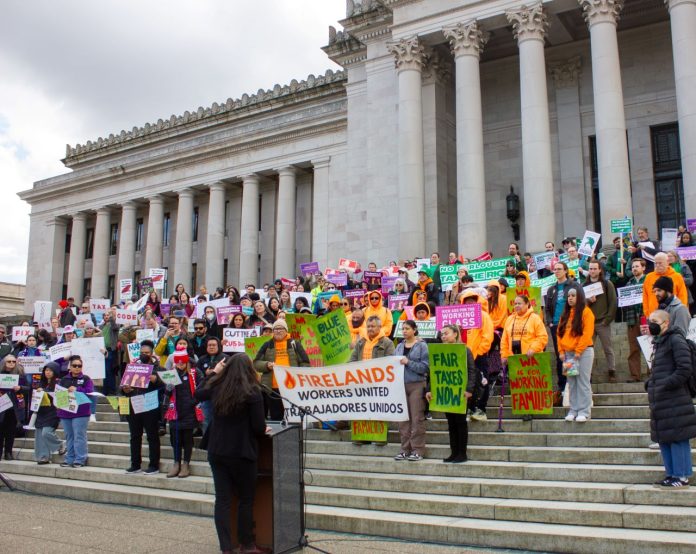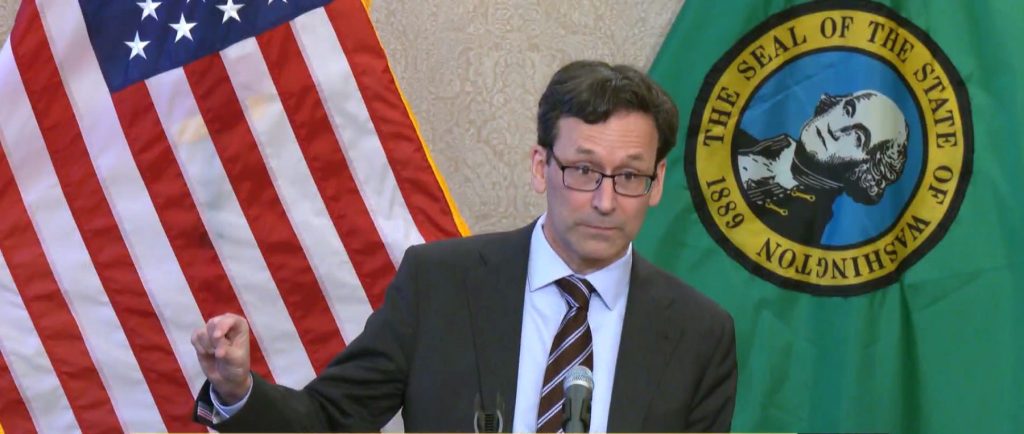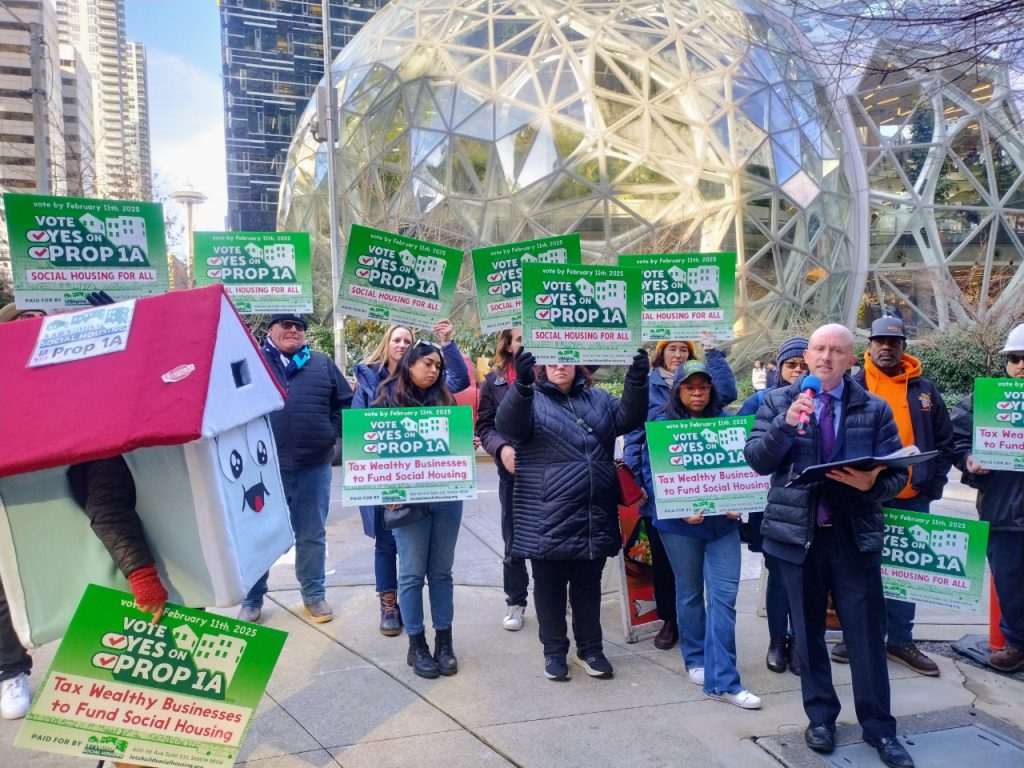
Tech workers are aware of how we’re perceived. We are mostly transplants who work for dubiously evil companies, and we can see how our presence is gentrifying and changing the landscape in Washington. After working in big tech for the last 10 years, I’ve started to make changes to feel like I belong in this place I really love — to put my heart where my feet are.
Lately, I’ve been volunteering in policy areas like worker’s rights and immigration advocacy. Through those advocacy spaces, I learned that our state had a huge budget deficit. We were told it was unlikely that we would pass any of the policies we cared about this year unless our representatives passed progressive tax reforms to make the wealthy pay a little more of what they owe.
By spring, it became clear that this would not happen, despite lawmakers initially rallying behind the wealth tax and several bills to close corporate tax loopholes. In the end, we didn’t get many taxes on rich people. Instead, we got regressive taxes that impact small businesses more than big corporations. We got sales and sin taxes that only worsen our upside-down tax code, balancing the cost of running our state on those who can afford it the least.
Organizers shared why the much-needed reforms didn’t pass, and it wasn’t just Governor Bob Ferguson threatening to veto many progressive bills. It was also big tech.

Because of their lobbying this year, Washington is cutting funds for public health services, childcare and early learning programs, and higher education. While families are struggling financially, we won’t see the needed increases in funding for our most basic social supports.
I started the Tech4Taxes coalition this year out of a strong sense of injustice. I knew those tech lobbyists were telling legislators the same threats they always do: “We’re so poor! If you pass these taxes, we’ll lay off your constituents, then write an op-ed blaming you!” And so far, their threats have been working.
But tech workers like me don’t enjoy being a bargaining chip to protect our CEO’s bottom line. And we know better than anyone else that their claims are false. They can absolutely afford to pay all the taxes that were proposed this year, and more.
The CEOs of Meta, Microsoft, Uber, and Lyft are all making yearly compensation in the tens of millions – and that doesn’t even cover their other assets and wealth that we allow them to hoard tax-free. They are constantly spending billions on new hardware, just to serve more ads or create more sketchy artificial intelligence (AI) applications. It’s hard for the average person to understand just how small a dent that local tax changes would make in the bottom line of these global corporations.
The threat of layoffs also doesn’t ring true to us. Tech corporations lay people off all the time. Microsoft just laid off a bunch of workers recently for no good reason, as the company’s net income was up 18%. Washington choosing to make our state resilient and better for all of us is not going to affect how these big corporations operate.
In fact, making our state a better place for working people is actually in these corporations’ best interests. They can’t survive without a workforce, and we are simply not going to move. We want to live in a state where there are public parks, beautiful nature nearby, and progressive social policies – that’s why corporations are still operating in states with much more progressive tax codes like California and New York.
It is sometimes easy to accept being a cog in the corporatocracy, but I find hope when other tech workers realize that we have much more in common with other working people than with the CEOs and lobbyists at our own companies. We work hard, and then we get arbitrarily laid off because the company wants to depress wages. We don’t have a union, and we’re often forced to work on projects that clash with our personal values and morals.

We are the actual people who work every day to keep enormous technical systems running – systems that are super critical to the entire world. Tech workers don’t understand our own leverage and political power, and our companies take advantage of that. Only our boss’s boss’s boss’s boss is actually benefiting from the lobbying that is happening “for us.”
In general, it hurts your ego to be told you don’t deserve to live here, or that the tech autocracy is your fault. The truth for most of us is that we live here not just because of our company, but because we feel connections to the people and the land, the natural beauty of the Northwest, and our neighbors that share our values. In the face of our current federal administration, more and more tech workers are trying to figure out what we can do to help. Having more tech people stand up for a just economy, and having non-tech people hear that, is important for building solidarity.
Advocates will continue doing our work because we care about making Washington a resilient state that doesn’t just tax our poorest people. Like always, there will be resistance from the tech lobby and the Governor. But we voters protected childcare funding when the capital gains tax on the wealthy was challenged at the ballot. Coalitions of people made sure it stayed. And if we want a state that works not just for tech workers, but for all people who live here, we have to face these challenges together.

Fatema Boxwala
Fatema Boxwala is a tech worker living in Seattle with her husband. She is the director of operations for Revolutionary Grains, coalition leader of Tech4Taxes, and member of the Balance Our Tax Code Coalition. She is a passionate advocate for progressive revenue, food system justice, and immigrant rights. Views expressed are her own and do not reflect the opinions of her employer.

